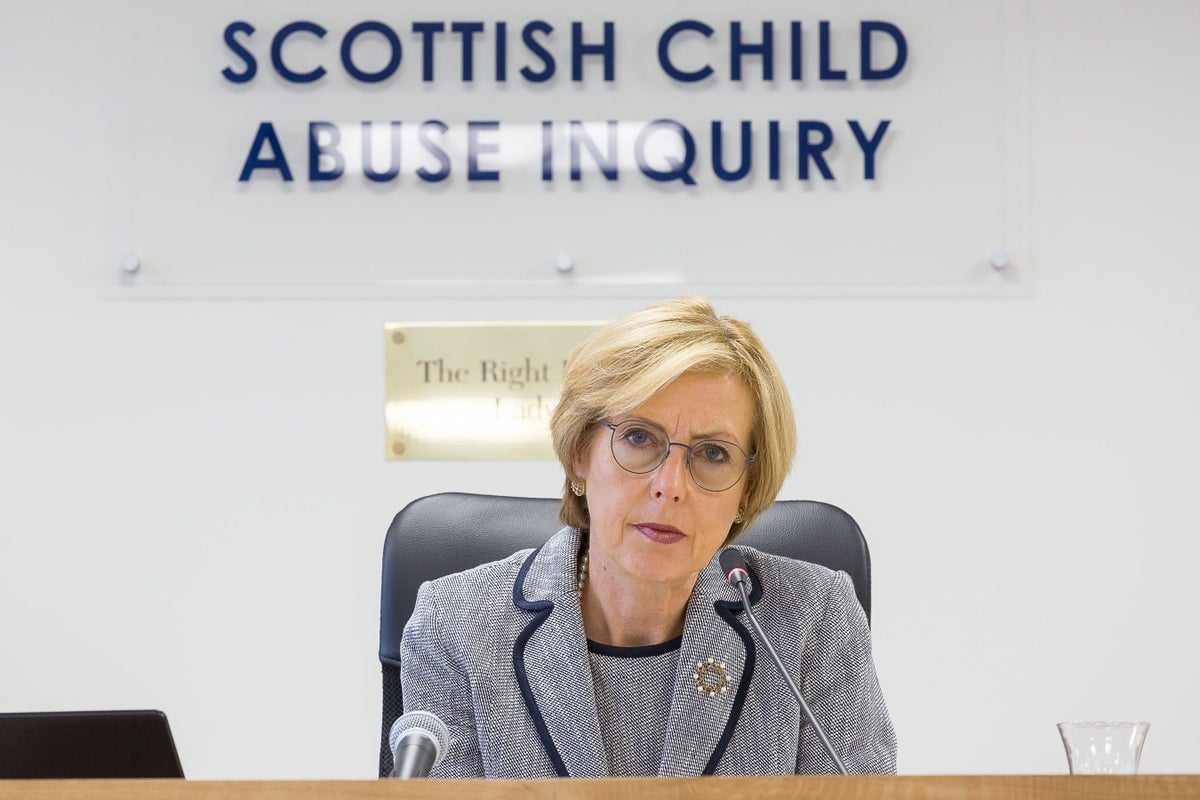
An accused former teacher was supported in a bid to adopt a child by a psychiatrist who believed he could “cure him” – and intervened to stop him being sacked from Fettes College over abuse allegations, an inquiry has heard.
A senior psychiatrist, who practised in Edinburgh, initially treated Iain Wares for alcoholism, but then diagnosed him as a “pederast” – a paedophile with a specific interest in boys.
The professor, who cannot be named for legal reasons, became intent on “curing” him, the Scottish Child Abuse Inquiry was told.
Wares was admitted to the Royal Edinburgh Hospital in 1977 as his “drinking was out of control”, and his wife was unsure if she could continue their marriage, and he had also been admitted for three months in 1975, the inquiry heard.
A consultant psychiatrist, using the pseudonym Robert, who treated Wares from April to September 1977 in his role as a junior doctor, told the inquiry it was “bizarre” his professor boss was able to lobby Fettes College to allow Wares to keep his job.
Medical notes included “keep away from drink and young boys”, and “inclination to young boys”.
Permission was given by the inquiry’s chair earlier this year to identify Wares, 83, who was previously a “protected person” and was referred to by a pseudonym.
It has been alleged that Wares abused children at two schools in Edinburgh.
On May 27 1977, a letter was sent to a GP which discussed Wares’ adolescence and early adult life, including “homosexual encounters”.
Notes added: “At our session last week he came across as a somewhat distant man who is still attracted to young boys,” and added “there was really no change in the patient’s outlook and interest in children.”
Fettes College was apparently unaware of claims of “indecent practices” in South Africa, and “temper outbursts” and allegations of sexual abuse at Edinburgh Academy when Wares was hired in 1973.
However, a mother complained in 1975 after her son allegedly was touched, and the previous history came to light, believed to be through the NHS psychiatric services.
Fettes College considered sacking Wares – however, the professor treating him urged them to reconsider, writing a letter in February 1976, as he believed he could “cure” him, the inquiry heard.
Wares was sacked in December 1979 from Fettes College after another allegation was made, and medical notes said he “planned to return to South Africa”.
In 2003, a letter was sent from Wares which referred to “a change from earlier situations where I used to be asked to leave a job quietly”.
Giving evidence before inquiry chair Lady Smith, Robert said: “He left his jobs at Edinburgh Academy and at Fettes, I don’t know if there were further episodes in South Africa.”
Robert said there was “no obligation” to report concerns within the NHS, and that it would have been considered a breach of patient confidentiality in the 1970s.
Andrew Brown KC, senior counsel to the inquiry, said: “A consultant intervened to allow the patient to keep his job at the school.”
Robert said: “It beggars belief that a headmaster should do that. It is almost incomprehensible.”
Mr Brown said: “You used the word ‘bizarre’ about the professor supporting Wares adopting a child.”
It was met with gasps from the public gallery but no more was said about it in evidence.
A teacher who worked at Fettes College between 1973 and 1983 revealed he wanted Wares to lose his job after the first allegation of inappropriate touching was made – but claimed he was overruled.
The written statement from the witness said that that at no point were police brought in by the school, the mother who made a complaint, or by the NHS.
NHS Lothian has been contacted for comment.
A spokesperson for Fettes College said: “Listening to all the evidence has been a profoundly moving experience and we applaud the bravery of everyone who shared their stories. We offer a full and unreserved apology to anyone who suffered abuse at Fettes College.
“These accounts to the Inquiry describing the abuse suffered are now part of the school’s history and we have taken this as an opportunity to listen, reflect and learn.”
An Edinburgh Academy spokesperson said: “Schools should be safe places for everyone and, at various points in our history, this was not the case for too many of our pupils.
“They were wronged by specific individuals whose roles were to educate, protect and nurture them. For this, the Edinburgh Academy unreservedly apologises.”







